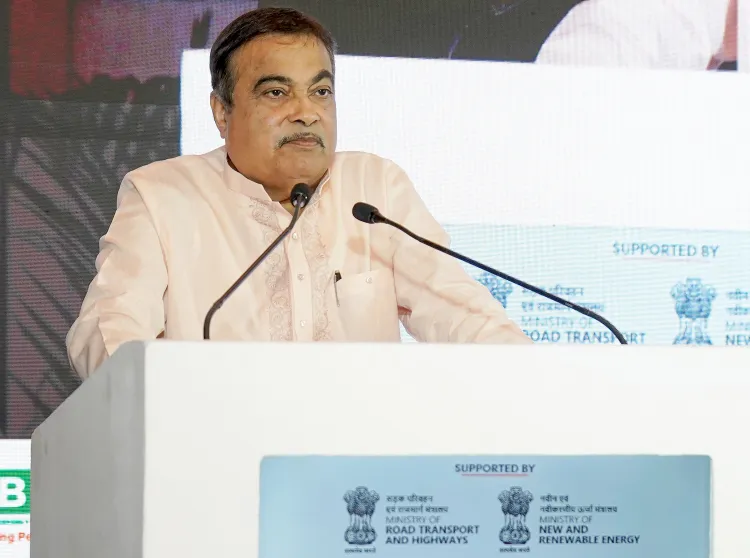Is Nitin Gadkari Leading a Biofuel Revolution to Enhance Rural Economy?

Synopsis
Key Takeaways
- Nitin Gadkari advocates for a biofuel revolution in India.
- Biofuels can significantly reduce fossil fuel imports.
- Transforming agricultural waste into energy offers economic benefits.
- India aims to shift from energy importer to exporter.
- Stubble burning can be harnessed as an opportunity.
New Delhi, May 8 (NationPress) Union Minister of Road Transport and Highways, Nitin Gadkari, emphasized the necessity for a nationwide biofuel transformation, labeling it a “once-in-a-century chance” to revolutionize India’s rural economy, diminish its substantial fossil fuel imports, and address air pollution.
During the 'International Summit Expo on Bioenergy Value Chain', the Union Minister stated that the moment has arrived to convert agricultural waste, crop residue, bamboo, and biomass into green fuel and value-added products.
Gadkari underscored the pressing requirement to slash India’s Rs 22 lakh crore fossil fuel import expenses and mitigate pollution stemming from crop waste burning and vehicle emissions.
“India must transition from being an energy importer to becoming an energy exporter,” he asserted, confident that this is attainable through sustainable bioenergy initiatives.
The minister commended Brazil for its accomplishments in aviation biofuel and noted that India has initiated the implementation of similar fuel alternatives at its airports.
“Sustainable aviation fuel represents a vast market for the future,” he remarked, stressing the importance of quality research and economically viable technologies.
In addressing the issue of stubble burning in northern India, Gadkari mentioned that it should be perceived not as a problem but as an opportunity.
“Rice straw from Punjab and Haryana can be transformed into bio-CNG, ethanol, bio-bitumen, and even aviation fuel,” he stated.
He pointed to Indian Oil’s Manpur project as a successful instance, which processes two lakh tonnes of crop waste into high-value fuel annually.
He also proposed utilizing India’s extensive stretches of wasteland—70 percent of which is unproductive—for bamboo plantations aimed at energy production.
Gadkari revealed that NTPC has already agreed to procure bamboo as white coal for thermal power plants, providing a new income source for farmers and rural entrepreneurs.
“Agriculture must diversify towards the energy and power sector,” he noted, adding that the surge in crop prices due to ethanol demand—like the increase in corn prices from Rs 1,200 to Rs 2,600 per quintal—demonstrates that biofuels can enhance farm income.
“Without economic viability in agriculture, we cannot achieve genuine growth,” he emphasized.










